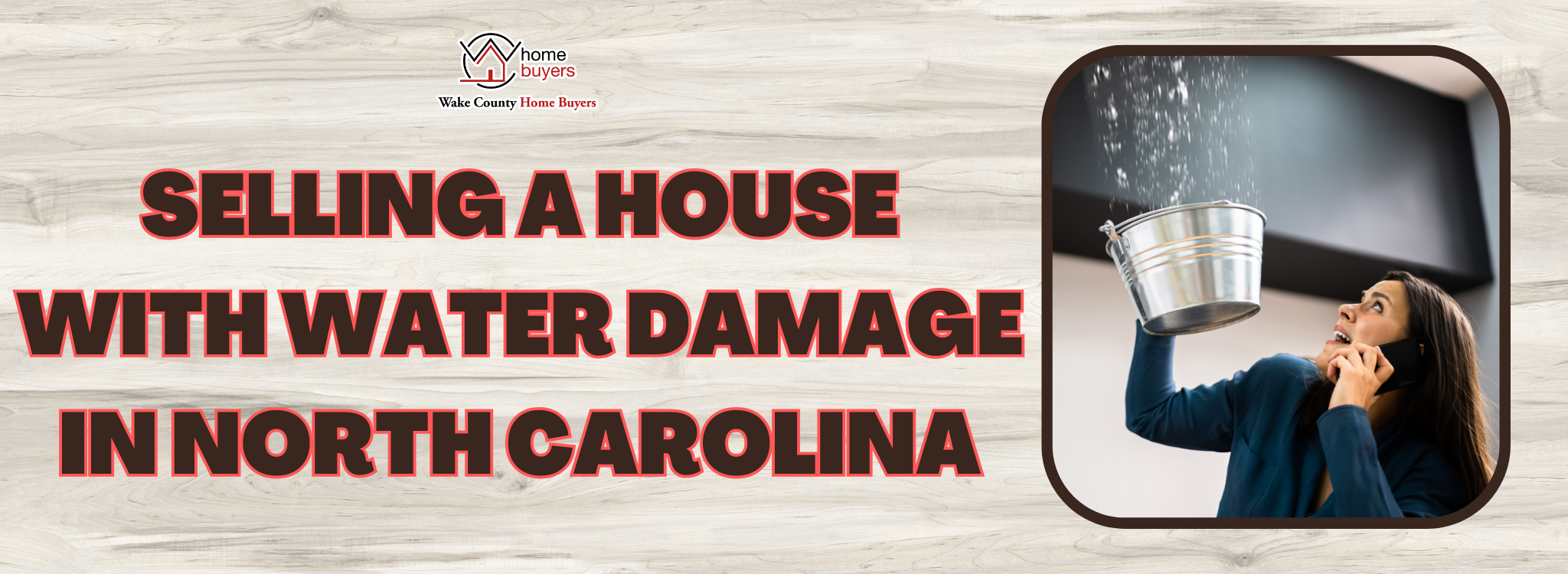
Understanding Water Damage And Its Impact On Selling A House In North Carolina
Water damage is a serious worry for homeowners selling their homes in North Carolina. Understanding the impact of water damage on the selling process is critical for maximizing profitability.
Water damage, from small leaks to large floods, can significantly affect a property’s value. Furthermore, North Carolina’s humid climate promotes mold growth, which can be costly to repair and deter potential purchasers.
Examining and repairing any water damage before listing a home for sale is crucial to attracting buyers and obtaining a favorable selling price.
The Importance Of Addressing Water Damage Before Putting Your North Carolina Home On The Market

If your home in North Carolina has water damage, it can make it much harder to sell and lower its value. Before putting their house on the market, people must fix any water damage they encounter.
Aside from making the house look bad, this problem can worsen without fixing it. Water damage in a home can signal deeper problems that will cost more, so potential buyers will be hesitant to buy it.
Selling a house can go more smoothly and bring in more money if buyers take care of any water damage before the sale.
Identifying And Assessing Water Damage In Your North Carolina Property
To sell a house with water damage in North Carolina, determine the damage’s degree. This involves looking for indications like discoloration on the walls or ceilings, damaged floors, and musty odors.
It’s also critical to check concealed areas, including behind appliances, under sinks, and crawl spaces. Once the damage has been found, it is critical to analyze its severity and decide if it can be repaired or requires more thorough restoration.
This will help evaluate the property’s overall value and influence your pricing strategy. Thoroughly documenting all water damage is critical to providing transparency to potential buyers and avoiding legal complications in the future.
Strategies For Repairing Water Damage In Preparation For Selling Your North Carolina House

If you intend to sell your home in North Carolina, one of the most pressing problems is how to handle water damage. Water damage can substantially lower the value of your property and make it more difficult to sell.
However, you may use tactics to repair the water damage while also maximizing your income during the selling process. One critical step is to identify and repair the cause of the water damage as soon as possible.
This will avoid future harm while demonstrating to potential purchasers that you have addressed the issue. Another approach is properly cleaning and drying the afflicted areas, which may involve dehumidifiers or employing expert cleaners.
Repairing structural damage from water might boost the selling price of your North Carolina home. Applying these tactics lets you properly prepare your home for sale and attract potential buyers eager to pay top price for a well-maintained property.
Working With Professionals To Remediate Water Damage In Your North Carolina Home
When selling a house with water damage in North Carolina, it’s important to work with professionals who are experienced in repairing the damage. These professionals possess the essential knowledge and equipment to resolve any water damage issues in your house appropriately.
They can also give you helpful advice on maximizing profits when selling your house. Entrusting the cleanup process to professionals ensures efficient and effective repairs, boosting the possibility of a successful sale.
Working with specialists can also save you time and stress because they handle every part of the cleanup process from beginning to end. With their assistance, you can confidently place your North Carolina property on the market and attract prospective buyers who will be pleased by its immaculate condition.
Maximizing The Value Of Your North Carolina Property By Dealing With Water Damage Effectively
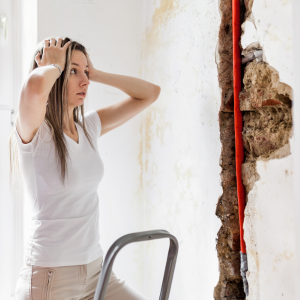
Effectively addressing water damage is vital for optimizing the value of a house for sale in North Carolina. Water damage can dramatically reduce the perceived value of a house and deter potential purchasers.
To avoid this, homeowners should fix any water damage issues as soon as possible and carefully. This includes determining the cause of the damage, restoring it effectively, and dealing with any subsequent structural or cosmetic difficulties.
Hiring professionals like plumbers or mold cleanup specialists may also be essential. By following these procedures, homeowners may ensure their property preserves value and attracts potential purchasers.
The Role Of Insurance In Dealing With Water Damage When Selling A House In North Carolina
Insurance is an important consideration when selling a house in North Carolina with water damage. It protects the seller and potential buyers financially.
Homeowners in North Carolina must carry flood insurance if their property is in a high-risk zone. This insurance can also cover natural calamities such as hurricanes and severe rainfall.
Homeowner’s insurance can also cover other water damage, such as burst pipes or malfunctioning plumbing. Sellers must have sufficient insurance coverage before putting their home on the market, as this can influence the buyer’s decision and maximize profits.
Tips For Negotiating The Sale Price Of A House With Previous Water Damage In North Carolina
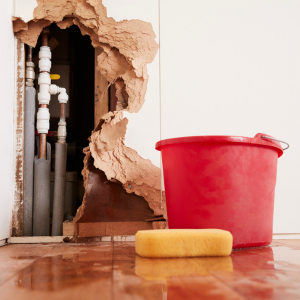
In North Carolina, selling a house damaged by water can be difficult, but you can still make the most money if you know how to negotiate. One important tip is to carefully measure the damage and get price quotes from several reliable contractors.
After reading this, you’ll have a good idea of how much to deduct from the selling price. If you point out any recent changes or improvements to the property, potential buyers may also be less affected by water damage.
Also, it’s important to be honest about the damage and show proof of any fixes that have been made. Finally, to get people to buy your house, you might offer benefits like paying the closing costs or giving them a home warranty. This will make your offer more appealing.
If you know what you’re discussing and plan your moves, you can sell your North Carolina house with water damage and still make the most money.
Disclosing Water Damage To Potential Buyers When Selling A House In North Carolina
When selling a residence in North Carolina, disclosing any water damage to potential buyers is crucial. This can be challenging, as you must simultaneously be transparent with consumers and maximize profits.
Initially, conducting a comprehensive evaluation and documenting all water damage within the residence is imperative. This encompasses visible and concealed damage, such as structural issues or fungi.
Next, ensure that this information is disclosed to potential purchasers in writing and that they are provided with any pertinent reports or documents from inspections. It is also crucial to be forthright and honest regarding any repairs that have been made or are required due to the water damage.
By being forthright about the water damage, you can establish trust with prospective purchasers and prevent potential legal complications in the future.
How To Make Your Listing Stand Out Despite Having Water Damage In Your North Carolina Home
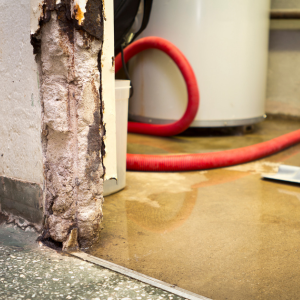
You can do some things to make your listing stand out and get people interested in buying your North Carolina house, even if it has water damage. Before you do anything else, ensure the water damage is correctly described in your post description. Give specifics about how bad the damage is.
There won’t be any shocks during the inspection process because the buyer will know what to expect. A new roof or sealing system are two examples of repairs or improvements that could have been made to fix the water damage.
Another way to draw attention away from the water damage is to use high-quality pictures showing the good things about your home. To make your post more appealing to buyers, you might also want to offer incentives like credit toward repairs or a home warranty.
By being honest about the water damage and focusing on its positive aspects, you can get the most money for your North Carolina home despite problems.
Marketing Strategies For Successfully Selling A House With Water Damage In North Carolina
If you want to make the most money when selling a house in North Carolina with water damage, you need good marketing strategies. One approach is to focus on the property’s unique qualities, like its location and the fact that it could be fixed up.
Using online directories and social media sites can also help you reach more people. Working with real estate agents in your area who know the market and have sold homes with water damage can also be helpful.
It is important to be honest about how bad the water damage is and tell potential buyers about any repairs or improvements that have been made. Lastly, giving bonuses or discounts might get people to buy a house that needs work in a nice place like North Carolina.
If homeowners use these marketing tactics, they can sell their water-damaged homes and make money simultaneously.
Staging Techniques To Minimize The Appearance Of Water Damage When Showing A House In North Carolina
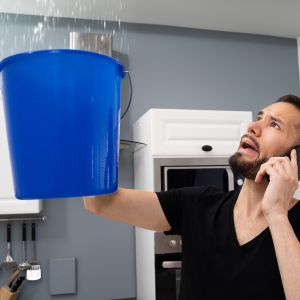
When selling a property in North Carolina afflicted by water damage, it is crucial to employ staging tactics to diminish its visibility and enhance profitability. The initial phase involves addressing the house’s exterior by rectifying any apparent water damage, like flaking paint or decaying wood.
This will generate a favorable initial impression and entice prospective purchasers. Subsequently, when arranging the residence’s interior, strategically position furniture and décor to divert attention from any residual water damage.
Employing neutral hues and eliminating personal belongings can help potential purchasers imagine themselves inhabiting the area. Furthermore, integrating natural light can enhance the area’s luminosity and appeal, diverting focus from any flaws resulting from water damage.
Implementing these staging strategies can increase prospective buyers’ likelihood of disregarding minor water damage and seeing the property’s genuine value.
Legal Considerations When Selling A House With Water Damage In North Carolina
Some legal considerations must be made when selling a house in North Carolina with water damage. Potential buyers must be informed about the extent of the water damage, or else they may face legal consequences.
In North Carolina, sellers must produce a disclosure statement outlining any property flaws or concerns, such as water damage. Furthermore, all essential repairs and remediation must be conducted by local building laws and regulations.
Failure to handle these legal factors may result in buyer disputes or lawsuits after selling the house. To maximize profits from selling a water-damaged house in North Carolina, sellers should collaborate with their real estate agent and maybe a lawyer to navigate legal complications and safeguard their interests.
The Impact Of Location On The Sale Of A House With Water Damage: A Focus On North Carolina
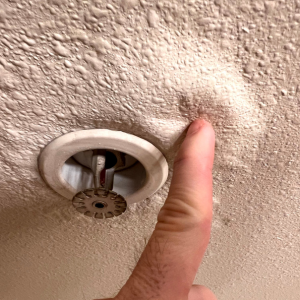
When selling a water-damaged house in North Carolina, the location can greatly impact the final transaction. Coastal districts in this state are particularly vulnerable to water damage caused by storms and floods, which can severely reduce a property’s value.
On the other hand, places further inland may be less affected by flood damage and, hence, have a larger demand for housing. Buyers in North Carolina may also consider access to amenities, schools, and transit when purchasing.
As a result, while attempting to maximize earnings by selling a house with water damage in North Carolina, it is critical to consider the precise location and its potential impact on the sale.
Understanding The Buyer’s Perspective: Overcoming Objections About Water Damaged Homes In North Carolina
Understanding the buyer’s point of view is critical when selling a water-damaged home in North Carolina. Many potential buyers may have reservations or objections to buying a water-damaged home, and sellers must resolve these issues appropriately.
One prevalent argument is the possibility of hidden damages and potential health risks. Sellers can avoid this by providing full evidence of any repairs and remediation efforts completed and getting expert inspections and certifications.
Another issue may be the cost of repairs, but sellers can relieve this by being open about the amount of damage and suggesting viable solutions or lowering the price appropriately. When selling a house with water damage in North Carolina, sellers can optimize their earnings by considering the buyer’s point of view and proactively responding to their issues.
Knowing When To Seek Professional Help Vs. Doing Diy Repairs For Water Damaged Houses In North Carolina
When selling a house with water damage in North Carolina, it can be tempting to try to save money by doing your own repairs. However, it is crucial to know when to seek expert assistance.
Water damage can be complex and difficult to repair without the right knowledge and tools. The humidity and environment in North Carolina can make drying out a water-damaged house even more difficult.
Furthermore, if not addressed properly, water damage can cause mold growth, which can endanger the home’s structure and the health of its residents. Professional assistance may also be required to precisely assess the degree of the damage and decide on the most cost-effective alternatives for maximizing the home’s sale earnings.
Preventative Measures: How To Avoid Future Issues With Water Damage After Selling Your North Carolina Home
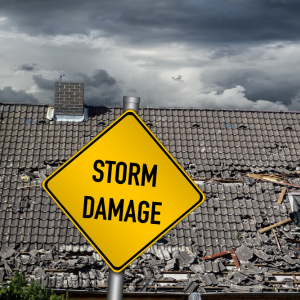
When selling a North Carolina house with water damage, the goal is always to make as much money as possible. However, if homeowners don’t take the right steps to avoid water damage after the sale is over, they may still have problems.
There are several ways to avoid these problems. Before putting the house on the market, it’s very important to fix any water damage that’s already there.
This means fixing any leaks, fixing any damage to the structure, and drying out the damaged areas the right way. Setting up regular inspection and repair schedules for your plumbing and roof can also help you find problems early on, before they become big ones.
Also, it’s important to inform possible buyers about any past water damage so they can make smart choices. If North Carolina homeowners take these steps, they can avoid future problems and keep their gains when they sell a house with water damage.
Alternative Options For Dealing With A House With Severe Or Unrepairable Water Damage In North Carolina
When selling a North Carolina home with significant or unrepairable water damage, homeowners may feel overwhelmed and unclear about their alternatives. However, there are alternate methods that might assist in optimizing revenues while easing the stress of dealing with damaged property.
One alternative is to sell the home as-is to a real estate investor who specializes in distressed houses. This alternative enables speedy selling without the need for expensive repairs.
Another alternative is to deal with a reliable home-buying company that would make a fair cash offer on the damaged property. Before listing their home for sale, homeowners can also consider submitting an insurance claim to pay some or all of the repair costs.
By considering these alternatives, homeowners in North Carolina can efficiently cope with serious water damage while maximizing their home sales profits.
Does Water Damage Decrease Home Value?
Water damage is a significant problem in homes, particularly in locations such as North Carolina, where hurricanes and severe rains are typical. Homeowners may be concerned that this type of damage would lower the value of their property when it comes time to sell.
Unfortunately, water damage can significantly influence a home’s overall value. It not only impacts the home’s exterior appeal and structural stability but also creates concerns among potential purchasers about future upkeep and repair expenditures.
However, with effective mitigation and restoration efforts, homeowners can reduce the negative consequences of water damage while increasing revenues when selling their North Carolina home.
What Is The Flood Disclosure Law In NC?
If you sell a house in North Carolina with water damage, you must be aware of the state’s flood disclosure requirement. This regulation requires sellers to notify potential buyers of any known flooding or water damage on the property.
Failure to divulge this information might lead to legal implications and financial losses. Both sellers and buyers must properly comprehend this law and its ramifications to make informed decisions about purchasing or selling a property in North Carolina.
Adhering to the flood disclosure rule allows sellers to maximize earnings while preserving openness and fairness in the real estate market.
This information applies to North Carolina and its cities, including Greensboro, Fayetteville, and Raleigh. For assistance or questions, please call us at (919) 473-6885 . You can also visit our website at Wake County Home Buyers for more details.
Helpful North Carolina Blog Articles
- Can You Sell A House With A Mortgage In North Carolina
- Can You Sell a Rental with Tenants in North Carolina?
- How Long to Move Out After Foreclosure Auction in North Carolina
- North Carolina Quitclaim Deed
- How to Sell a Hoarder House in North Carolina
- How to Sell a House With Code Violation in North Carolina
- Selling a House Without a Realtor in North Carolina
- Selling a House With Water Damage in North Carolina
- Squatter’s Rights in North Carolina
- What Taxes Do I Have to Pay When I Sell My House in North Carolina?
- Who Pays Closing Costs When Selling a House in North Carolina
- North Carolina HOA Foreclosure Laws
- Selling a House in North Carolina During an Ongoing Lawsuit

More Resources For Sellers In North Carolina
| [ | |||||
| “ | ’ | “ | , | ||
| “ | ] | “ | |||
| ] |


